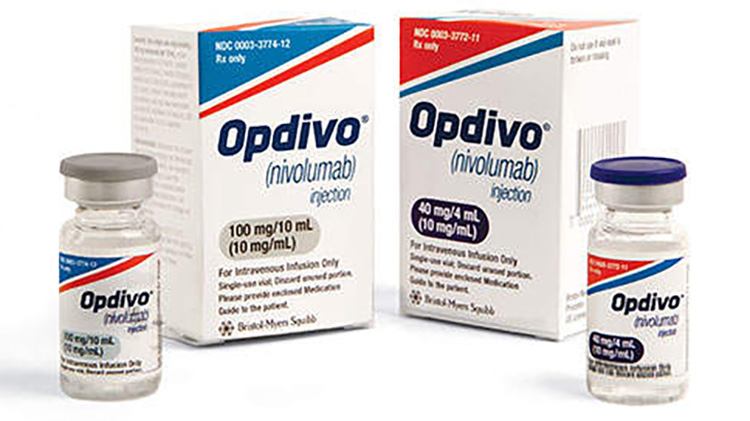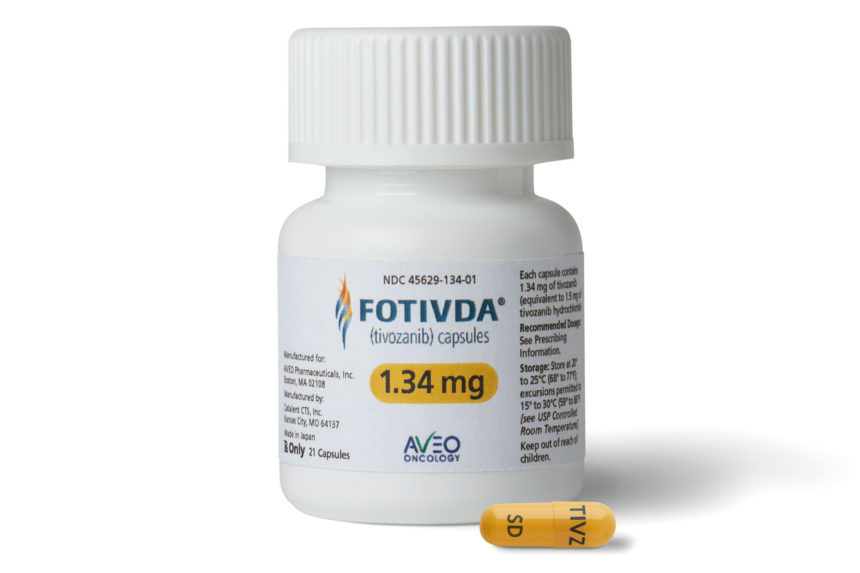Opdivo (Nivolumab) vs Fotivda (tivozanib)
Opdivo (Nivolumab) vs Fotivda (tivozanib)
Opdivo (nivolumab) is an immune checkpoint inhibitor that works by blocking the PD-1 protein on T cells, thereby enhancing the immune system's ability to attack cancer cells, and is commonly used in various types of cancers, including melanoma, lung cancer, and kidney cancer. Fotivda (tivozanib) is a tyrosine kinase inhibitor that targets vascular endothelial growth factor receptors (VEGFR), which can inhibit the growth of blood vessels to tumors, and is specifically indicated for the treatment of advanced renal cell carcinoma. When deciding between Opdivo and Fotivda, it is crucial to consider the specific type of cancer, the stage of the disease, the patient's overall health, and previous treatments, as these factors can influence the effectiveness and suitability of each medication.
Difference between Opdivo and Fotivda
| Metric | Opdivo (Nivolumab) | Fotivda (tivozanib) |
|---|---|---|
| Generic name | Nivolumab | Tivozanib |
| Indications | Various types of cancer, including melanoma, lung cancer, kidney cancer, bladder cancer, head and neck cancer, and more. | Advanced renal cell carcinoma |
| Mechanism of action | Programmed death receptor-1 (PD-1) blocking antibody which enhances the immune response against cancer cells. | Receptor tyrosine kinase inhibitor; inhibits the vascular endothelial growth factor (VEGF) receptors, which can reduce angiogenesis and tumor growth. |
| Brand names | Opdivo | Fotivda |
| Administrative route | Intravenous infusion | Oral |
| Side effects | Fatigue, rash, musculoskeletal pain, pruritus, diarrhea, nausea, asthenia, cough, dyspnea, decreased appetite, etc. | Hypertension, diarrhea, fatigue, dysphonia, hypothyroidism, decreased appetite, nausea, stomatitis, etc. |
| Contraindications | Patients with hypersensitivity to nivolumab or any of its excipients, and those with autoimmune disease or compromised immune systems. | Patients with hypersensitivity to tivozanib or any of its excipients, and those with severe hypertension not controlled by medical therapy. |
| Drug class | Immune checkpoint inhibitor | Tyrosine kinase inhibitor |
| Manufacturer | Bristol-Myers Squibb | Aveo Pharmaceuticals |
Efficacy
Overview of Opdivo (Nivolumab) in Kidney Cancer Treatment
Opdivo (nivolumab) is a programmed death receptor-1 (PD-1) blocking antibody indicated for the treatment of kidney cancer, specifically advanced renal cell carcinoma (RCC). As an immunotherapy drug, nivolumab works by enhancing the body's immune system to fight cancer cells. The efficacy of Opdivo for the treatment of kidney cancer was notably demonstrated in the CheckMate-025 clinical trial, which showed a significant improvement in overall survival in patients with advanced RCC who had previously received anti-angiogenic therapy. Patients treated with Opdivo experienced a median overall survival of 25.0 months compared to 19.6 months in those treated with everolimus, a standard therapy at the time of the study.
Fotivda (tivozanib) in the Management of Kidney Cancer
Fotivda (tivozanib) is a vascular endothelial growth factor receptor (VEGFR) tyrosine kinase inhibitor used in the treatment of advanced RCC. Tivozanib works by inhibiting angiogenesis, the process by which tumors develop new blood vessels to support their growth. The efficacy of Fotivda was established through the TIVO-3 study, which was a Phase III clinical trial comparing tivozanib to sorafenib, another targeted therapy, in patients with advanced RCC who had undergone previous treatments. The results demonstrated that tivozanib significantly improved progression-free survival (PFS), with a median PFS of 5.6 months compared to 3.9 months for patients receiving sorafenib.
Comparative Efficacy in Kidney Cancer Treatment
When comparing Opdivo and Fotivda, it is important to consider that they represent different classes of drugs and mechanisms of action. Nivolumab is an immunotherapy agent that has shown an overall survival benefit in patients with advanced RCC, while tivozanib is a targeted therapy that has demonstrated improvements in progression-free survival. The choice of treatment may depend on various factors, including the patient's previous treatments, the extent of disease progression, and the individual's overall health and treatment preferences.
Conclusion
Both Opdivo and Fotivda have shown efficacy in the treatment of advanced renal cell carcinoma, offering hope to patients with this challenging condition. Opdivo has made a significant impact by improving overall survival, while Fotivda has shown benefits in progression-free survival. As treatment options for kidney cancer continue to evolve, these medications represent important components in the oncologist's arsenal, providing tailored approaches to therapy based on patient-specific factors. Ongoing research and clinical trials will further define the optimal use of these drugs in various settings of kidney cancer care.
Regulatory Agency Approvals
Opdivo
-
European Medical Agency (EMA), European Union

-
Food and Drug Administration (FDA), USA

-
Health Canada

-
Pharmaceuticals and Medical Devices Agency (PMDA), Japan

-
Therapeutic Goods Administration (TGA), Australia

-
Medsafe (NZ)

Fotivda
-
European Medical Agency (EMA), European Union

-
Food and Drug Administration (FDA), USA

Access Opdivo or Fotivda today
If Opdivo or Fotivda are not approved or available in your country (e.g. due to supply issues), you can access them via Everyone.org.
How it works

Make an enquiry
Choose the medicine you want to buy, answer a couple of questions, and upload your prescription to speed things up. We’ll get back to you within 24 hours.


Make an enquiry
Choose the medicine you want to buy, answer a couple of questions, and upload your prescription to speed things up. We’ll get back to you within 24 hours.


Breeze through the paperwork
We'll guide you through the required documents for importing unapproved medicine, ensuring you have all the necessary information.


Get a personalized quote
We’ll prepare a quote for you, including medicine costs and any shipping, administrative, or import fees that may apply.


Receive your medicine
Accept the quote and we’ll handle the rest - sourcing and safely delivering your medicine.

Some text on this page has been automatically generated. Speak to your physician before you start a new treatment or medication.
Let's talk
If you have any questions, call us or send us a message through WhatsApp or email:
Contact us




